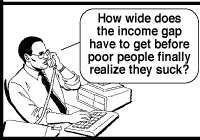Thu Jun 19, 2008 7:00pm BST
By Tom Doggett
WASHINGTON (Reuters) - Americans cut down on the number of miles they drove for the sixth straight month in April, resulting in the biggest six-month decline since the oil shock of the 1979-80 Iranian revolution, new government data shows.
As record gasoline prices push more and more commuters onto public transport and vacationers to trim trips, U.S. highway travel fell 30 billion miles between November and April, down 1.7 percent from the comparable period a year earlier, according to the U.S. Department of Transportation.
That was the steepest decline since Americans cut back their driving by about 500 million miles over two years in 1979 and 1980, when there were gasoline shortages and price spikes after the Shah of Iran was overthrown, said department spokesman Doug Hecox.
In fact, the current 30-billion-mile drop in highway travel is likely more than all the previous declines combined during the 66 years that the department has been collecting such information, Hecox said.
"It's a pretty severe decline that we've seen," he said.
During April alone, Americans drove 1.4 billion fewer highway miles, down 1.8 percent from a year earlier and 400 million miles less than in March.
The high cost of gasoline has cut highway travel almost 20 billion miles, or 2.1 percent, during the first four months of this year, the department said.
Rural areas, where families drive more and spend a larger share of their income on gasoline, have seen the biggest decline in highway travel.
Travel on rural interstates for the January-April period is down 2.9 percent and off 3.1 percent on other rural highways.
A new report on Thursday from an energy advisory group reflected the drop in total highway travel, saying U.S. gasoline demand may have peaked last year and will likely decline in 2008 for the first time in 17 years.
Cambridge Energy Research Associates said long-term shifts in consumer behavior, such as buying more fuel-efficient vehicles, is helping to push gasoline demand lower.
"Americans are now driving less and demanding greater fuel efficiency from their vehicles when they do drive," said Aaron Brady, CERA's global oil director.
Sales of mid-size sport utility vehicles fell 38 percent last month compared to a year earlier. Sales of better-mileage passenger cars, which were less than half of all vehicle purchases last year, jumped to 57 percent in May.
The downside for the government is less money to pay for highway projects and public transportation, which is funded by an 18.4-cents-per-gallon gasoline tax and a 24.4 cents-per-gallon diesel fuel tax.
"As positive as any move toward greater fuel efficiency is, we need to make sure we have the kind of sustainable funding measures in place to support needed highway and transit improvements well into the future," said Acting Federal Highway Administrator Jim Ray.
CERA said gasoline prices still do not cause as much economic hardship as they did during the 1980s, but they are getting close to the "pain point" of just over $4.20 a gallon for an average annual price.
























9 comments:
Higher gas prices -- and the resulting high oil company profits -- are good because the promise of cutting into those profits will induce the R&D investment to get us to widespread use of clean tech, which is the only way we could ever generate the massive reductions in CO2 or whatever it is that we need. But in the meantime, why cheer the fact that people have to travel less? Environmentally, it's a drop in the bucket that changes zilch, while in people's lives, it hurts. I doubt all those miles got made up for other means of transit. People probably just travelled less (or less time-efficiently), and a decline in travel, all else being equal, probably leads to an increase in human misery...and doesn't that, um, suck? Some poor people probably visited their grandmothers one fewer time, or told the kid that he couldn't go visit his friend across town, and so forth. It sure as hell isn't the "plutocrats" by themselves cutting back by billions of miles.
(Sorry for letting loose the combative libertarian in me tonight. I'll try to feed him better going forward...)
I don't disagree that higher gas prices are good. It seems counterintuitive to say that resulting high oil company profits "are good because the promise of cutting into those profits" will do anything. How will high profits cut into profits? And who is to say that high profits or cut profits will induce investment. The American car industry has not shown us that high profits are used for R&D, but rather to enrich the shareholders, who act more as parasites than symbiotes. You can after all sell your shares at a high.
Well, if you don't let companies profit (or you take away their profits every time they make some), then a good bit of the incentive for newcomers to outdo those companies is lost. This sort of incentive potentially dwarfs Johnny Mac's $300 million prize both in size and scope (in that it could go in part to many different players).
I don't expect R&D to come from the established auto companies, and I don't know why anyone else would. I expect it to come from venture capital. You know, startups, new companies. Maybe even new furr'n companies, though J-Mac's prize sure ain't going to one of those, even if they solve the problem. But if there are profits to be made selling their products here, then we can still benefit from their innovations.
Misery? Since when did this country care about that? 50 (60?) million people don't have health care, and thousands die each year as a result. No one is doing anything about that. You ain't gonna visit grandma if either you or grandma is dead. If we cared about misery, it seems there would be more outrage over this issue than gas prices (has anyone died?). Or the war. Thousands dead or maimed, displaced, etc. and yet the majority of Congress and country was all for it. Seems to me, we LOVE misery. Or, at least, we're not scared away from the potential of it.
My "cheer" regarding this news is mostly based in the (perhaps wrong) idea that people are starting to change their driving behavior. How is that a bad thing? In San Diego, the HOV lane is only for the on ramp to the highway. While i'm on the bus in the HOV lane with a few other vehicles, i see two lanes of single-person vehicles lined up. Have some of these people gotten on the bus with me (it seems much fuller compared to last summer), or started to car pool? That's what i hope. Isn't this a finite resource we should start using less? (I know, that will probably be offset by China and India, but that's not a reason for us not to try to use less.)
I'm certainly not in the "poor demographic," but i don't have a car and i've manged to survive out here. Yes, getting around is harder and i don't do things i may have normally done with a car. And perhaps if i'm not driving, there will be more gas for the guy living in the middle of Kansas who really needs to drive.
Aren't these just market forces at work? Supply and demand? Perhaps consumers will flock the first electric car that comes out?
Electric cars have been around for years. Auto industry got them killed in California. See the movie:
http://us.imdb.com/title/tt0489037/
Also, the Japanese have developed a car that runs on water:
http://inhome.rediff.com/money/2008/jun/25car1.htm
Millions of people don't have health insurance. They get quite a bit of health care, much of it quite good.
Electric cars were hardly "killed"...maybe kneecapped.
You seem to dislike misery, Smiff. Guess you really are un-American, eh?
Ok, some of the uninsured get a bit of care. Though our system costs more than any other country in the industrialized world, and by just about any measure we rank far down the lists in terms of
overall health.
And i would say the auto industry did kill the electric car in California. People were driving them, then politicians were bought off, laws were changed, GM revoked all the leases, and all the cars were destroyed.
I do wonder if most of the miles being traveled less are commuter miles - as Smiff suggests - through car-pooling or subways (I know of at least two people in NYC for instance, who used to drive to work who now make the more environmentally friendly subway journey - but that's anecdotal...) - or whether they are more of the visiting grandmother nature that Briggs suggests.
One thing I did see was a story in the Times a few weeks ago which talked about how the rich who aren't "super-rich" have been cutting down on private jets and so on - which are pretty horrible. Though I don't like pointing at things like this as necessarily good, because the poor do suffer much much more than the middle class or rich in situations like this (as Briggs points out)...but it's clear we need to change environmental behaviors - most importantly though, I think, we're going to have to look at how to expand economies in emerging countries who have things like rain forests or millions of potential cars or rails to add to their infrastructures...
Post a Comment